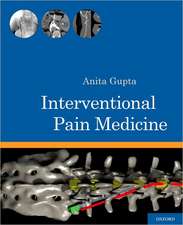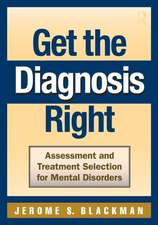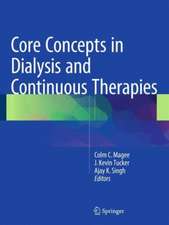Aging and Cognitive Processes: Advances in the Study of Communication and Affect, cartea 8
Editat de Fergus Craiken Limba Engleză Paperback – 24 dec 2012
Preț: 721.40 lei
Preț vechi: 759.37 lei
-5% Nou
Puncte Express: 1082
Preț estimativ în valută:
138.06€ • 143.76$ • 116.68£
138.06€ • 143.76$ • 116.68£
Carte tipărită la comandă
Livrare economică 07-21 martie
Preluare comenzi: 021 569.72.76
Specificații
ISBN-13: 9781468441802
ISBN-10: 1468441809
Pagini: 420
Ilustrații: XVIII, 396 p.
Dimensiuni: 152 x 229 x 22 mm
Greutate: 0.56 kg
Ediția:Softcover reprint of the original 1st ed. 1982
Editura: Springer Us
Colecția Springer
Seria Advances in the Study of Communication and Affect
Locul publicării:New York, NY, United States
ISBN-10: 1468441809
Pagini: 420
Ilustrații: XVIII, 396 p.
Dimensiuni: 152 x 229 x 22 mm
Greutate: 0.56 kg
Ediția:Softcover reprint of the original 1st ed. 1982
Editura: Springer Us
Colecția Springer
Seria Advances in the Study of Communication and Affect
Locul publicării:New York, NY, United States
Public țintă
ResearchCuprins
1 Neuroanatomical and Clinical Neuropsychological Changes in Aging and Senile Dementia.- Aging: Normal versus Pathological.- Neuroanatomical Changes.- Clinical Neuropsychological Changes.- Conclusions.- References.- 2 Cellular Mechanisms of Alzheimer’s Disease.- References.- 3 Advances in the Psychophysiology of Aging.- Novel Descriptive Techniques: Windows into the Brain.- Intervention: Plasticity in the Aging.- Conclusions.- References.- 4 A Neuropsychological Approach to Perception and Memory in Normal and Pathological Aging.- Visual Perception: The Effects of Backward Masking on the Identification of Letters and Words.- Primary and Secondary Memory: Free Recall, Cued Recall, and Recognition of Words and Faces.- Procedural or Skill Memory.- Remote Memory.- Memory in Everyday Life.- Summary.- References.- 5 How Do Old People Know What to Do Next?.- Passive and Active Control of Momentary Changes in Selective Attention.- Control of Efficient Interrogation of the Environment.- Remembering What to Do Next.- Conclusions.- References.- 6 The Development of Visual Information Processes in Adulthood and Old Age.- A Visual Information Processing Model.- Developmental Questions.- Peripheral Perceptual Processes.- Central Perceptual Processes.- Selective Attention and Pattern Recognition.- Developmental Implications.- References.- 7 The Appearance and Disappearance of Age Differences in Adult Memory.- Summary of Present Research.- Integration with Previous Research.- Conclusions.- References.- 8 General Encoding of Episodic Events by Elderly Adults.- Experiment 1.- Experiment 2.- Experiment 3.- Conclusions.- References.- 9 Learning and Memory Deficits in Institutionalized and Noninstitutionalized Old People: An Analysis of Interference Effects.- Interference.- Control ofLearning and Memory Deficits.- Brain Mechanisms.- Empirical Studies.- Concluding Comments.- References.- 10 Encoding Deficits in Aging.- References.- 11 Aging and Cognitive Deficits: The Role of Attentional Resources.- Theoretical Background.- Empirical Studies.- Conclusions: Possible Reasons for Age Decrements in Memory.- References.- 12 Classification Style Differences in the Elderly.- Method.- Results.- Discussion.- References.- 13 Changes with Age in Problem Solving.- The Longitudinal Study of Concept Problem Solving.- Current Status and Future Directions.- References.- 14 The Theory of Fluid and Crystallized Intelligence in Relation to Concepts of Cognitive Psychology and Aging in Adulthood.- Subjects and Variables.- Analyses and Results.- Brain Function in Relation to Gf and Gc.- Summary.- References.- 15 Reallocation of Mental Resources over the Productive Lifespan: Assumptions and Task Analyses.- Overview.- Assumptions in Empirical Cognitive Gerontology: Subject-Selection Practices.- A Study of Cognition, Age, and Voluntarism.- References.- 16 Attention Switching in Higher Mental Process.- References.- 17 Studying Cognitive Performance in the Elderly: A Biopsychosocial Approach.- The Biological Issues.- Social Psychological Issues.- Conclusions.- References.- 18 Memory Functioning in Late Adulthood.- Five Problems of Potential Significance.- Potential Effects of Self-Perceived and Attributed Memory Problems on Self-Concept and on Interpretations of Behavior.- Content of Memories in Old Age: Case Studies.- References.- 19 Plasticity and Enhancement of Intellectual Functioning in Old Age: Penn State’s Adult Development and Enrichment Project (ADEPT).- Objectives of ADEPT.- On Variability and Plasticity in Intellectual Aging.- Context and Hypotheses of ADEPTResearch.- General Design Characteristics.- Results of Intervention Studies.- Conclusions.- Summary.- References.






















